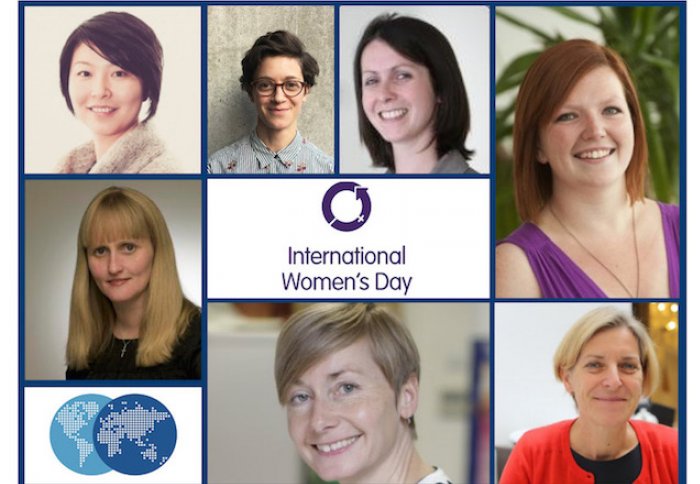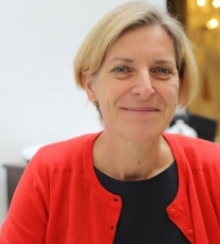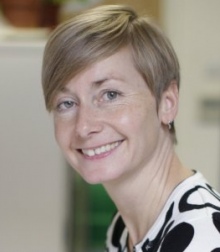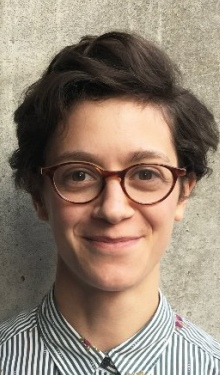Seven women shifting the boundaries of global health innovation

On International Women's Day, we focus on seven women in IGHI at the forefront of global healthcare innovation.
Global health innovation is advancing at a fast pace with new ideas and technologies to tackle diseases and illnesses. We’re witnessing the evolution of cutting edge solutions and research, allowing the inequalities in health across to be tackled directly.
On International Women’s Day, we take a look at the work of seven Imperial women within the Institute of Global Health Innovation who are making their mark in improving healthcare and wellbeing across the world.

Professor Kathryn Maitland
Principle Investigator at KEMRI-Wellcome Trust Research Programme and Director of the Centre of African Research and Engagement (ICCARE)
Tackling transfusion issues for African children
In sub-Saharan Africa, severe anaemia in children is a leading cause of hospital admission. It is responsible for a high proportion of the 660,000 malaria-related deaths estimated to occur each year. Although timely transfusion can be life-saving, equitable access to adequate supplies of safe blood for transfusion remains a key challenge. To preserve this scarce resource and reduce the risk of transfusion-transmitted infections, the World Health Organization (WHO) developed guidelines to encourage the rational use of blood transfusion restricting routine transfusion to those with a haemoglobin (a substance in red blood cells that combines with and carries oxygen around the body) of less than 4 g/dl or 4-5g/dl if they have additional signs of severity.
With limited research in this area, Professor Maitland and her team used the data from the FEAST trial (a fluid resuscitation trial in African children) finding that only 94% of children with severe anaemia received a transfusion. For those who did not, just over half died by eight hours. This alone, highlights the need to adhere to WHO’s restrictive guidelines.
Problems concerning the overuse of blood, high rates of re-transfusion and findings challenging the current WHO recommendation are the questions being addressed by Professor’s Maitland’s randomised controlled TRACT trial. It is hoped that the evidence from the trial will to inform or refine current recommendations for the rationale use of paediatric blood transfusion.
TRACT involves 4000 children admitted to four hospitals with severe anaemia in Uganda and Malawi and started in September 2014. To date, the trial has a 96% enrolment rate of study participants. Follow up is due to be completed by December 2017.
Find out more about the TRACT project here.

Professor Beate Kampmann
Professor of Paediatric Infection & Immunity and Director of Centre for International Child Health (CICH)
Protecting newborn babies by vaccinating their mothers
As part of her work, paediatrician and scientist, Professor Beate Kampmann is currently conducting research into the possibility of avoiding infections in newborn babies by vaccinating their mothers against certain infections during pregnancy. This has already been shown to work well to prevent tetanus, whooping cough and flu.
Professor Kampmann’s study looked at 61 mothers and babies over several months, taking blood samples from the mother and baby. The level of antibodies naturally received in each baby was then measured and compared to the baby’s mother after they had received the three doses of their baby vaccines. So far, this has shown that women pass on a very low antibody to their babies. Professor Kampmann is also investigating the immune system of the young babies to see what response exactly the vaccines trigger.
In the UK, the CICH Director has set up the MatImms cohort, a longitudinal study that starts with women’s attitudes to vaccines in pregnancy, follows them throughout the pregnancy to delivery and then the babies up till five months of age. She and her team have also developed a freely available App called MatImms for women to learn more about vaccines in pregnancy.
Hear Professor Kampman speak on the study here.

Dr Stephanie Archer
Research Fellow, Faculty of Medicine, Department of Surgery & Cancer, NIHR Imperial Patient Safety Translational Research Centre, Centre for Health Policy
Highlighting the importance of patient safety in mental health
Despite the growing international interest in patient safety as a discipline, there has been a lack of exploration of its application to mental health. At the NIHR Imperial PSTRC, Dr Stephanie Archer leads a team of researchers to explore this issue in more detail. At the moment, they are undertaking a large systematic review that will identify the research that has been conducted in the area of patient safety and mental health.
These findings will complement the results from an expert consensus study that asks international experts (clinicians, academics and patients) what the priorities for patient safety and mental health research should be. In addition, Dr Archer and her team are working with West London Mental Health Trust (WLMHT) to look at two areas that have been identified as areas for improvement at the Trust. The first project looks at how incident reporting can be improved.
The second project explores how staff cope, and build resilience when dealing with self-harm incidents within a medium secure women’s service. Whilst all of these projects are still ongoing, Dr Archer and the team are excited by their initial findings, and feel that they will be in the best place to make Imperial College London world leaders in mental health/patient safety research.
More about the work of Dr Archer and her team can be found here.


Professor Elaine Holmes and Dr Jia Li
Head of the Division of Computational & Systems Medicine and Lecturer in Human Development and Microbial Signalling, Centre for Digestive and Gut Health
Discovering non-invasive ways of treating obesity and diabetes
Obesity and its co-morbidities are severe health and socioeconomic problems. Weight loss surgery, such as gastric banding, Roux-en-Y Gastric Bypass (RYGB) and sleeve gastrectomy, have become increasingly popular in treating morbid obesity and simultaneously carries other metabolic benefit including combatting type 2 diabetes. However, little is known about how the surgery works.
The research of Professor Elaine Holmes and Dr Jia Li aims to investigate the mechanisms of weight loss surgery using highly sensitive spectroscopic and gene sequencing methods. The findings could lead to discoveries of new non-surgical treatments. Their study has shown that weight loss surgery, in particular, RYGB surgery, caused changes in the gut microbiome, which could be a key player in reducing body weight and type 2 diabetes. They also found that the RYGB operation resulted in substantial metabolic changes in urinary and faecal profiles.
These interesting findings have led to future studies on the functionality of the gut microbiota and are directing us towards a safer and non-invasive way of treating obesity and diabetes.
Read more about this project here.

Madeleine Maxwell
Project and Engagement Manager, Helix Centre
Changing the bowel cancer screening process for the better
Today, bowel cancer is both treatable and curable. Despite this, only 58% of people invited by the NHS Bowel Cancer Screening Programme (BCSP) actually participate in the screening.
Madeleine Maxwell and her colleagues at the Helix Centre have been using design to get those who are at the highest risk of bowel cancer to participate in the screening process. Using the existing screening kit, they redesigned it to make it easier for reluctant participates to get tested for bowel cancer.
The research involved interviewing a small number of people at the extremes of the target population, such as going to people’s homes to discuss their views on the process. Madeleine and her team found that it was due to fear and denial that many people avoided undertaking the screening process.
The project has also found that subtle changes are important. Introducing language about bowel health rather than cancer was found to be effective in the screening process. Currently, the kit designed by Madeleine and her colleagues will go through go through a large-scale randomised control trial later this year, but promises a bright future for improving the bowel cancer screening programme.
Read more about the bowel cancer screening redesign here.
 Dr Karen Kerr
Dr Karen Kerr
Director of Operations, Paul Hamlyn Chair of Surgery, Division of Surgery
Bringing experts together to revolutionise medical robotics
2017 marks the 10th year of the The Hamlyn Symposium due to take place from the 25th to the 28th of June. Run by the Hamlyn Centre, the event enables surgeons and engineers from across the globe to experience the latest developments in medical robotics.
Dr Karen Kerr, Director of Operations, is an integral part of the Symposium. Responsible for coordinating the event, Dr Kerr brings together the experts for the Symposium including world-leading scientists, engineers, and clinicians from a wide range of disciplines associated with medical robotics and surgery.
This year the Symposium takes place at the Royal Geographical Society. It will include talks from a number of distinguished speakers, a series of topical workshops, and the Surgical Robot Challenge to name a few highlights that attendees can look forward to.
Find out more about the event here.
Article text (excluding photos or graphics) © Imperial College London.
Photos and graphics subject to third party copyright used with permission or © Imperial College London.
Reporter
Nikita Rathod
Communications Division